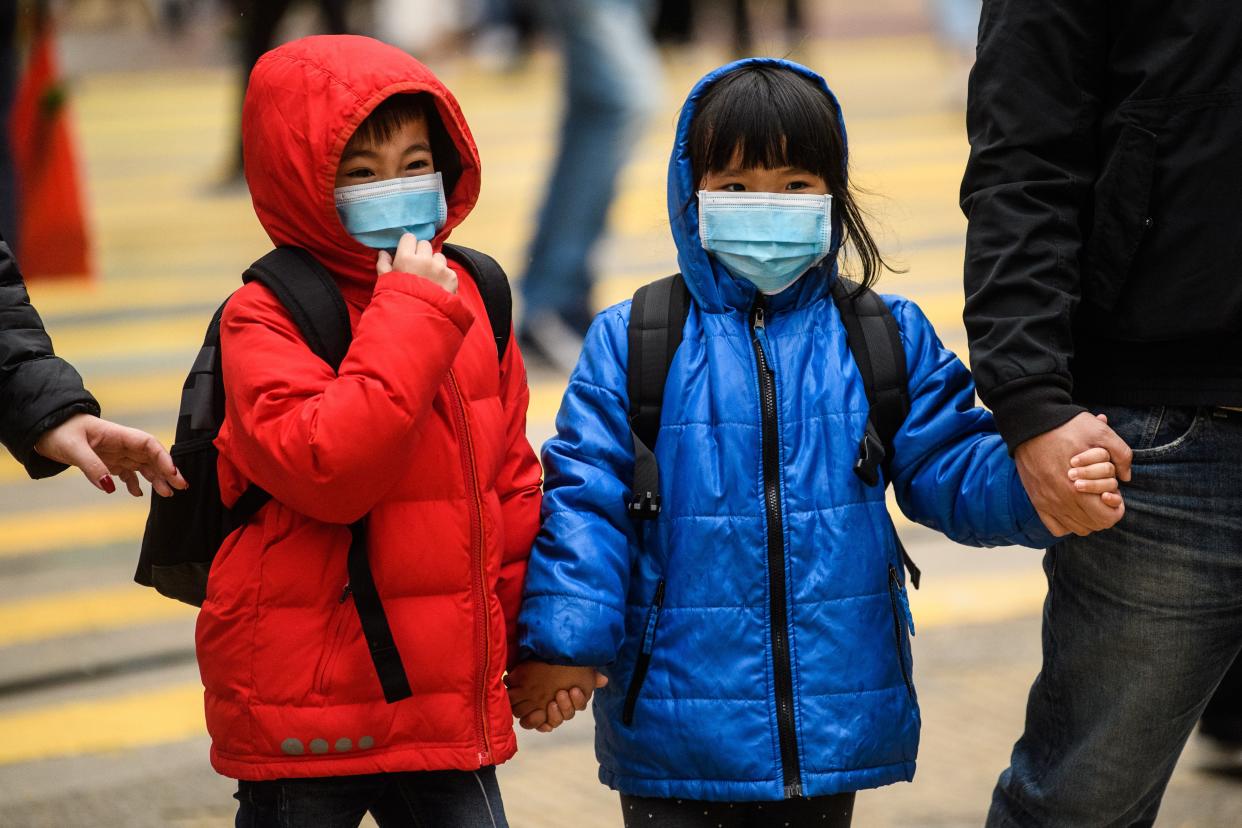110 Americans in 26 states under watch for Wuhan coronavirus as CDC calls risk to public 'low'

The novel Wuhan coronavirus continues to spread across continents, while U.S. fears mount that more cases of the infection are on the horizon. During a call with reporters Monday, officials from the Centers for Disease Control and Prevention (CDC) updated the latest numbers, revealing that 110 individuals from 26 states in the U.S. are currently being monitored for the illness. Thus far, 32 have tested negative. And, noted officials, “the immediate health risk from the new virus to the general American public is low at this time.”
The illness, which originated in the Chinese city of Wuhan, has killed 80 people so far and infected more than 3,000. Doctors say it causes a severe respiratory infection that can turn deadly, and is spread through human-to-human contact. While the vast majority of cases have appeared in China, the U.S. confirmed its fifth case on Sunday, in Arizona. The first case on U.S. soil was confirmed in Washington state on January 21, followed by another case in Illinois and two in California.
Nancy Messonnier, M.D., director of the CDC’s national center for immunization and respiratory diseases, says that the organization is performing health screenings at five designated airports to identify individuals who are known as PUIs, or “persons under investigation.” PUIs are defined as individuals who are showing a fever or symptoms of low respiratory illness (such as cough or difficulty breathing), and have either traveled to Wuhan, China in the last 14 days or have been in contact with someone who has.
State or federal authorities who identify a PUI alert the CDC, which decides whether to request a specimen for testing. The CDC says they have yet to see “human-to-human transmission” in the U.S. and that thus far, the majority of cases have been in older individuals or those who are immunocompromised. Messonnier said the incubation period is between two to 14 days, but added that officials are still working on conclusive data as the outbreak is “unrolling” in front of their eyes.
Messonnier addressed concerns surrounding comments from China's health minister Ma Xiaowei on Sunday in which he reportedly said the virus can be spread before symptoms appear. “We at CDC don't have any clear evidence of patients being infectious before symptom onset,” said Messonnier. “We are being... very aggressive and very cautious in tracking of close contacts to determine if we are able to identify any close contacts who indeed are ill.”
As of now, the organization is recommending that individuals avoid “non-essential” travel to the Wuhan province of China, and that those traveling to other parts of China exercise “enhanced precautions.” Messonnier added that these travel recommendations may be changed in the coming days, but did not elaborate on what the change may entail.
Speaking with Yahoo Lifestyle last week, Waleed Javaid, PhD, an epidemiologist and director of infection prevention and control at Mount Sinai, said the best way for Americans to remain safe is to keep their hands clean. “Masks ... can help with prevention, but the most basic to help in prevention is washing hands,” Javaid said. “Washing our hands regularly and frequently is very helpful. Humans, by nature, touch their faces a lot more than what we realize, and that’s how we can get the transmission of infection to us.”
Over the weekend, Anthony Fauci, MD, director of the National Institute of Health, downplayed concerns about the virus, saying it’s “no worry” for Americans. Messonnier agreed. “We understand that many people in the United States are worried about this virus and how it will affect Americans. Risk depends on exposure,” said Messonnier. “Right now we have a handful of patients with this new virus ... However, at this time in the U.S., this virus is not spreading in the community. For that reason, we continue to believe that the immediate health risk from the new virus to the general American public is low at this time.”
Read more from Yahoo Lifestyle:
Follow us on Instagram, Facebook and Twitter for nonstop inspiration delivered fresh to your feed, every day.

